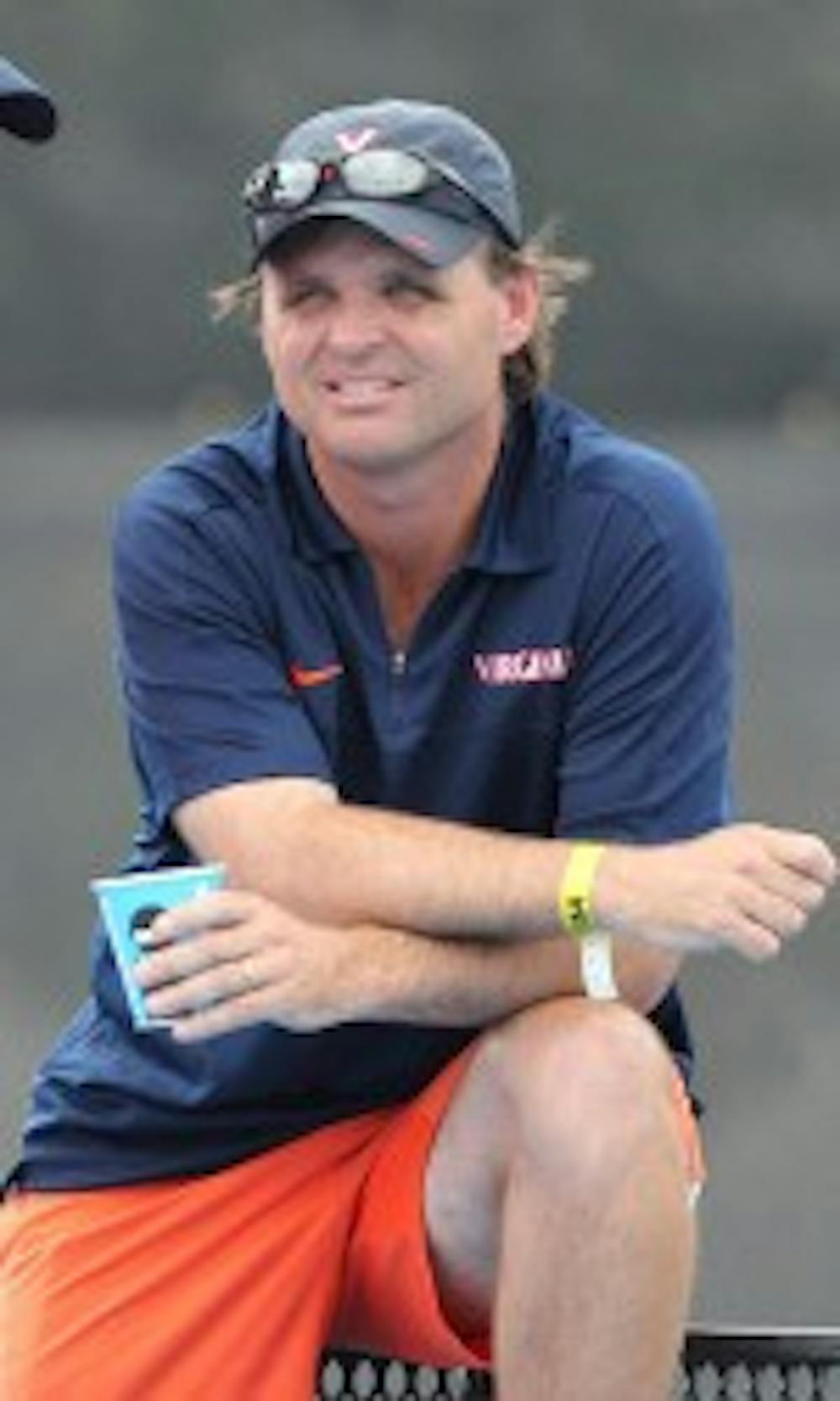This past Sunday, the Z Society commended men’s tennis coach Brian Boland for his 16 years of service at the University. It might seem odd for a secret society to commend a coach during a random conference match. However, because Boland only has two regular season matches remaining in Charlottesville — recently agreeing to become head of USTA Player Development — he has more than earned the honor.
Upon Boland’s arrival in Charlottesville, there was little of note about the Virginia men’s tennis program. However, he took an unranked program to the ACC Championship within three seasons — his first step towards creating what would become a powerhouse team.
Boland’s Cavaliers have been ranked No. 1 in the country during nine separate seasons, and they have won 13 straight ACC regular season titles. Their accolades are equally impressive on the individual level, with three NCAA Singles Champions, three NCAA Doubles Championships and 44 All-Americans.
Given all these achievements, it is easy to assume there is something intrinsic about the program’s success and that Virginia tennis is primed for success going forward. However, the program rose with Boland, and his departure will provide the first test of the staying power of the program as a national tennis dynasty without him.
What remains to be determined, however, is whether or not the Cavaliers are up to the task.
This year’s team has already demonstrated the potential to perform at a championship level. Virginia is 20-1 on the season and 7-1 in conference play, with seven wins against nationally ranked opponents.
This effort has been led largely by the upperclassmen — senior Thai-Son Kwiatkowski as well as juniors Colin Altamirano and Alexander Ritschard. The three of them, who generally man the top three singles spots in addition to playing doubles, are 44-13 on the season and 19-5 in the conference.
In particular, Kwiatkowski is one of the most successful players Boland has coached — his 2015 ITA Men’s singles and doubles championships made him only the fourth player ever to win both in the same year, and the first since 2009.
While he is certainly the face of this year’s team, Kwiatkowski will not be around next season, and Ritschard and Altamirano will each depart the following year.
As such, much of the leadership burden may fall on the younger players on this year’s team. Freshman Carl Söderlund may be the best bet to carry this load. Although he did not play for eight weeks, Söderlund is undefeated on the season at 8-0. This is unsurprising given his pedigree — Söderlund was ranked as the ITA’s top newcomer this season. He and his classmates, who will be the last players to have played under Boland, will have to lead the way forward.
As Kwiatkowski’s graduation demonstrates, however, there is only so much any group of players can do for the program — their successes on the court are inherently limited by time. In the long run, the success of Virginia men’s tennis will have to be determined by the school.
Athletics Director Craig Littlepage will have to make the right hire to replace Boland, in addition to providing the requisite funding for a championship program. A hire like Boland’s former assistant and current Wake Forest head coach Tony Bresky — whose Demon Deacons gave Virginia its only loss of the season — would be a great sign for the future of the program.
We may not know the effect Boland’s departure will have for years, and all the principal parties involved in mitigating its impact are likely currently more focused on this season’s playoff run. However, the future of Virginia tennis now has some clouds over what has long been a blindingly bright horizon. Boland will certainly be missed, but how Virginia tennis copes with his loss will speak volumes about his legacy and the program he is leaving behind. Given Boland’s phenomenal efforts to date, I would not bet against him.
Jake Blank is a Senior Associate Sports Editor for The Cavalier Daily. He can be reached at j.blank@cavalierdaily.com or on Twitter at @Jake_33.





